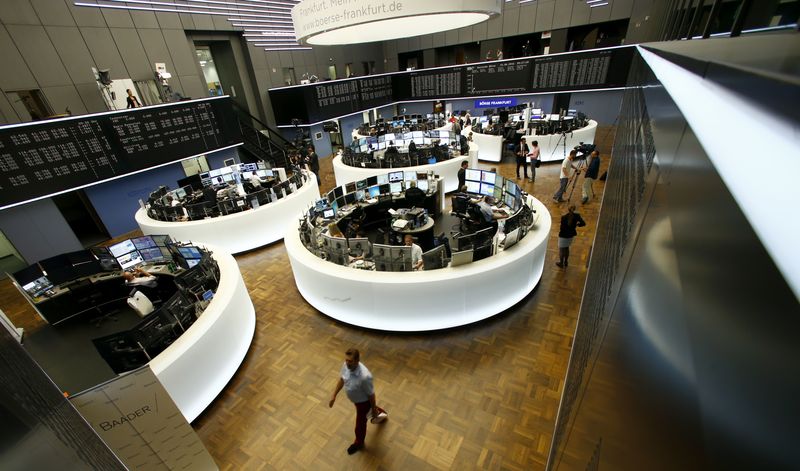This post was originally published on this site

At 02:00 ET (06:00 GMT), the DAX futures contract in Germany traded 0.4% lower, CAC 40 futures in France dropped 0.5% and the FTSE 100 futures contract in the U.K. fell 0.5%.
Germany started the week’s key inflation releases from around the globe, with data released earlier Tuesday showing that consumer prices in Europe’s largest economy increased 0.3% on the month in July, matching the June number.
The annual figure fell to 6.2% from 6.4% the prior month, an indication that prices are falling in the eurozone’s most important economy, something that could persuade the European Central Bank to pause its prolonged tightening cycle at its next policy meeting in September.
This release is a prelude to the highly anticipated inflation figures from China overnight and the United States on Thursday, which are likely to set the tone for the rest of the week.
Global stocks have been boosted by raised expectations that the U.S. economy will have a soft landing this year, avoiding recession as the Federal Reserve ends its aggressive interest rate hikes sooner than had been feared.
Further signs that U.S. inflation is slowing would add to that narrative, as could comments from the likes of Philadelphia Fed President Harker and Richmond Fed President Barkin later Tuesday.
On the other hand, the Chinese economy, the world’s second-largest, is struggling, with weak trade numbers out earlier Tuesday the latest illustration of this.
China’s imports dropped 12.4% in July year-on-year, a more severe drop than the 5% forecast, while exports contracted 14.5%, steeper than an expected 12.5% decline and the previous month’s 12.4% fall.
In Europe, earnings from the likes of Glencore (LON:GLEN) and Bayer AG (ETR:BAYGN) will be studied closely Tuesday, but the banking sector is likely to be in the spotlight after the Italian government announced a new tax on the “extra profits” of its banks this year, while Moody’s credit agency downgraded the ratings of 10 small and midsize U.S. lenders.
Oil prices edged lower Tuesday, weighed by the weak Chinese trade numbers, but losses are small ahead of the latest U.S. stockpile figures.
Oil imports to China, the world’s largest oil importer and second-largest consumer, in July were down 18.8% from imports in June though up 17% from a low base a year ago.
The American Petroleum Institute, an industry body, is scheduled to release its estimate of U.S. crude inventories later in the session, as is expected to show another drawdown after last week’s hefty fall.
By 02:00 ET, the U.S. crude futures traded 0.2% lower at $81.79 a barrel, while the Brent contract dropped 0.2% to $85.14.
Additionally, gold futures fell 0.1% to $1,967.90/oz, while EUR/USD traded 0.1% lower at 1.0995.

